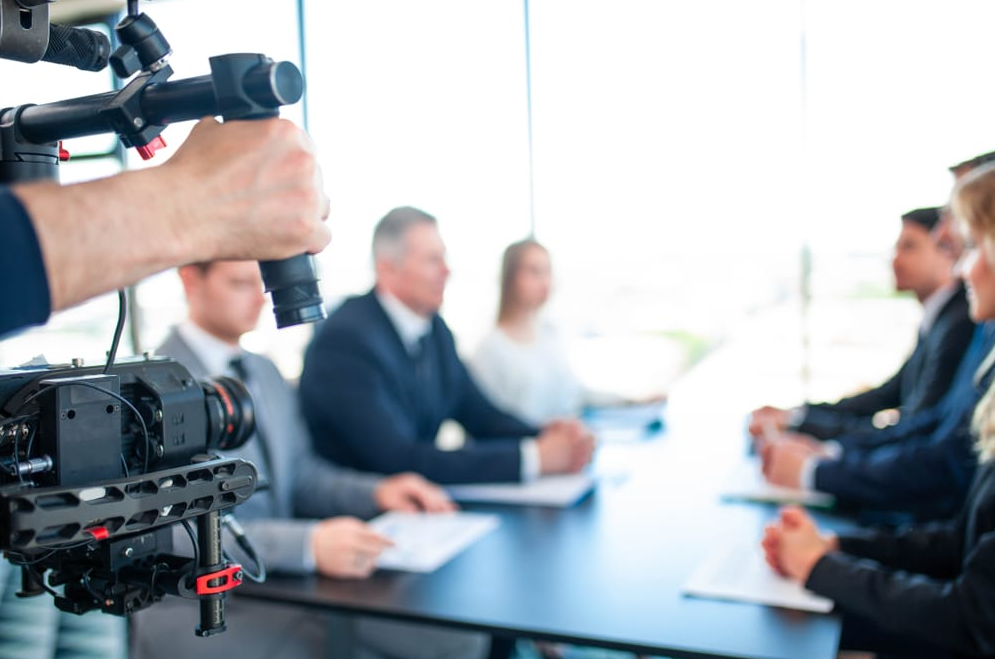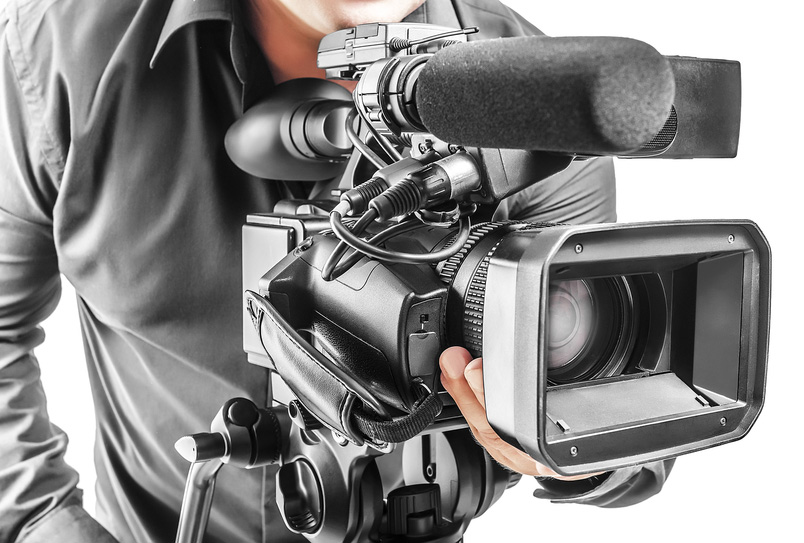The Duty of Lawful Videography in Depositions and Trials
Lawful videography has actually arised as a crucial device in both depositions and trials, providing a diverse strategy to documenting witness testimonies. By capturing not only the talked word however also the subtleties of non-verbal communication, this medium enhances the trustworthiness of statements and preserves essential evidence for future proceedings (legal videography). As lawyers increasingly acknowledge its value, it motivates a much deeper assessment of how these aesthetic documents can influence juror perceptions and test results. What ramifications might these advancements hold for the future of legal method?

Value of Lawful Videography
Lawful videography plays an essential duty in the paperwork and discussion of depositions and tests. This specific field incorporates technical skills with legal knowledge to develop a trusted document of proceedings that can substantially influence instance end results. The aesthetic facet of lawful videography enhances the understanding of witness testament, allowing jurors and judges to observe not just the spoken words however likewise the behavior, feelings, and body language of the witnesses.
Additionally, legal videography provides an objective account of events, decreasing the possibility for misinterpretation that can accompany composed transcripts alone. This aesthetic documentation acts as a critical device throughout test discussions, assisting in a more clear and more persuasive narrative for both plaintiffs and accuseds. Additionally, the capacity to replay video sectors during court proceedings allows legal groups to highlight vital factors, reinforcing their disagreements successfully.
The importance of lawful videography expands beyond the court room; it additionally plays a vital function in maintaining evidence for future reference, whether for appeals or additional lawsuit. Therefore, its assimilation right into the legal procedure is necessary for guaranteeing a reasonable and precise representation of the realities, ultimately adding to the quest of justice.

Refine of Legal Videography
While recording the nuances of depositions and tests, the procedure of legal videography includes numerous essential actions that make certain premium, accurate recordings. Originally, an expert lawful videographer prepares by assessing the situation products and recognizing the particular needs of the deposition or test. This prep work consists of acquainting themselves with the individuals and the context, which helps in capturing important details.
On the day of the recording, the videographer establishes the essential devices, which typically includes high-def electronic cameras, microphones, and appropriate lights. Making sure optimum angles and audio top quality is critical, as it straight influences the effectiveness of the recording. The videographer connects with lawyers and participants to develop methods, ensuring that everyone comprehends the recording process.
During the deposition or trial, the videographer meticulously videotapes the process, paying attention to both spoken and non-verbal cues. This includes catching the disposition and responses of witnesses and attorneys. After the session ends, the videographer might modify the footage for clarity and compliance with lawful standards, generating an end product that accurately shows the proceedings for future referral and usage in legal contexts.
Advantages in Depositions
The consolidation of videography in depositions offers various benefits that enhance the general procedure of gathering evidence. One key advantage is the capability to catch witness testaments with aesthetic and auditory fidelity, supplying a imp source much more accurate depiction of the witness's behavior, tone, and body language. This multidimensional approach permits attorneys and juries to assess reputation better than standard written records alone.
Furthermore, videographed depositions serve as a powerful tool for preserving testament. Ought to a witness come to be not available for test, their recorded deposition can be played in court, ensuring that their proof remains available and appropriate. This aspect substantially lowers the threat of losing essential information that could influence case results.

Last but not least, videography improves the general professionalism and trust of the deposition procedure, instilling self-confidence in clients regarding the thoroughness of their legal depiction (legal videography). By leveraging technology, lawful experts can dramatically improve the effectiveness of depositions
Effect On Trials
In several trials, the integration of videography can dramatically influence the presentation of proof and the jury's understanding. Legal videography catches witness testaments and essential evidence in a vibrant layout, allowing jurors to involve with the product on several degrees. This visual element enhances the storytelling aspect of a trial, supplying context and psychological resonance that conventional text-based evidence may lack.
Additionally, video clip recordings can function as powerful tools for impeachment throughout cross-examination. When disparities develop between a witness's prior declarations and their court testimony, video proof offers an objective referral that can sway jurors' viewpoints. This immediacy and quality can bolster the credibility of an event's story while concurrently undermining opposing arguments.

Future Trends in Legal Videography
As we look towards the future of legal videography, a number of why not try here emerging trends assure to reshape its duty within the court. One significant fad is the integration of synthetic intelligence (AI) in video evaluation and editing. AI can simplify the procedure of identifying essential moments in tape-recorded depositions, allowing lawyers to rapidly access relevant material, therefore improving performance in situation prep work.
Furthermore, the rise of online reality (VIRTUAL REALITY) and increased reality (AR) innovations is expected to change exactly how jurors experience evidence. legal videography. By submersing jurors in a simulated atmosphere, these modern technologies can offer an extra extensive understanding of intricate situations, resulting in even more informed deliberations
In addition, the enhancing need for remote depositions, accelerated by the COVID-19 pandemic, will likely proceed. Lawful videographers will need description to adapt to brand-new software application and platforms to ensure premium recordings in digital settings.
Lastly, the expanding focus on data safety and security will demand stricter methods for saving and sharing video evidence. As the legal landscape advances, lawful videographers have to remain abreast of these fads to maintain their significance and efficiency in the judicial process.
Final Thought
In summary, legal videography offers a crucial function in the judicial procedure, improving the integrity of depositions and tests. By recording the nuances of witness testimonies, this medium not just preserves important evidence yet additionally aids in providing information efficiently to jurors. The importance of aesthetic documentation in examining trustworthiness and promoting cross-examination can not be overemphasized. As innovation proceeds to develop, legal videography is poised to more transform its function within the legal landscape.